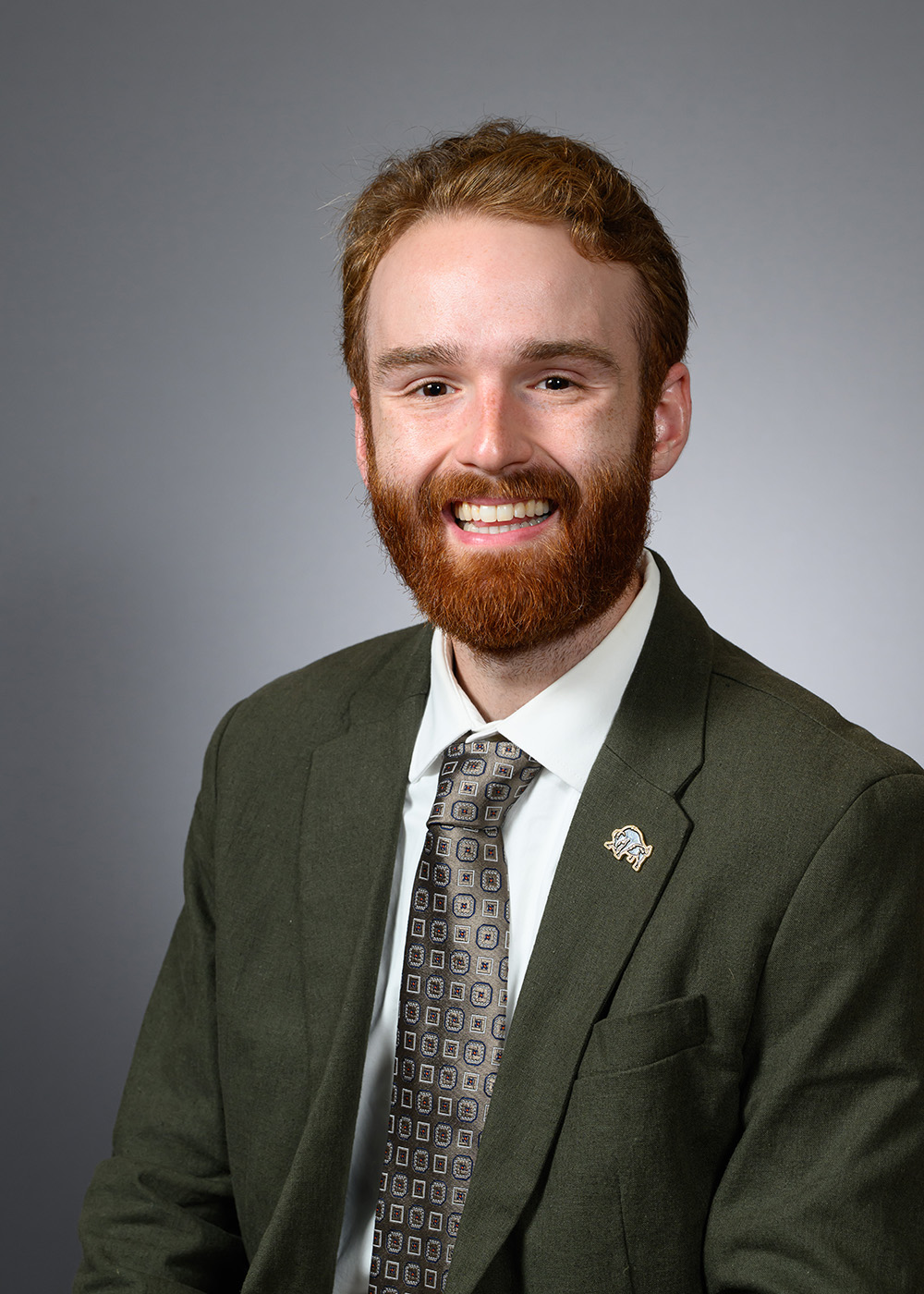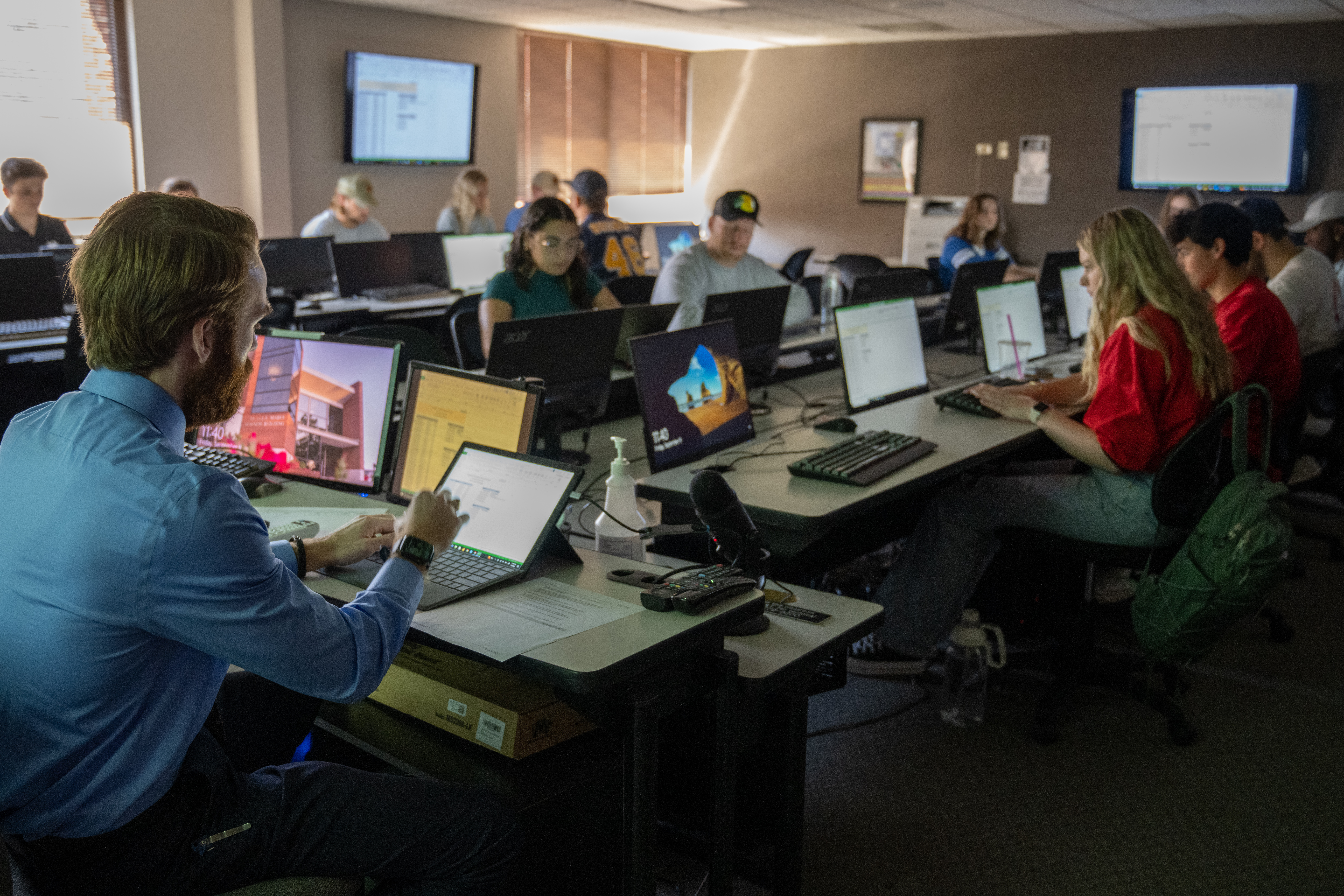by Joe Faith, assistant professor
 Artificial intelligence has vast potential to drive innovation and address complex challenges in health care and beyond. I am working to embrace this potential with research that not only pushes the boundaries of AI but also provides valuable insights to guide our Bachelor of Science in artificial intelligence program that will launch in Fall 2025. Through this program, we aim to equip students with tools to build responsible, impactful AI models that make a difference across industries.
Artificial intelligence has vast potential to drive innovation and address complex challenges in health care and beyond. I am working to embrace this potential with research that not only pushes the boundaries of AI but also provides valuable insights to guide our Bachelor of Science in artificial intelligence program that will launch in Fall 2025. Through this program, we aim to equip students with tools to build responsible, impactful AI models that make a difference across industries.
Pioneering research in AI for health care
My research centers on predicting chronic kidney disease progression using a temporal neural network — a type of AI model that can process sequential data to forecast future states. CKD is a complex and progressive condition, often complicated by other health factors like diabetes and hypertension. By developing a model that integrates these variables, including diabetes control and angiotensin blockage, I’m seeking to improve predictive accuracy, enabling a deeper understanding of patient risk profiles over time.
This model captures intricate patterns by using a transformer-based encoder which allows it to weigh key factors and relationships across multiple timelines, adapting as new data is introduced. This type of AI could provide clinicians with valuable foresight, alerting them to potential CKD progression up to a year in advance. These insights enable tailored interventions that may slow disease progression, ultimately leading to more individualized and effective patient care.
While the focus is health care, the broader significance lies in the model's design and adaptability. Temporal neural networks, especially those based on transformer architectures, are suited for any industry where data changes over time and predictions need to be precise. This research underscores how AI can model complex, evolving patterns — a skill set that we’re eager to pass on to students in our AI major.
Informing model-building in Harding’s AI major

Insights from this research will directly inform the model-building decisions in the AI major, giving students exposure to real-world use cases that bridge theory and application. The Bachelor of Science in artificial intelligence at Harding is designed to offer students a hands-on, interdisciplinary education with opportunities to work on AI models that address pressing challenges in multiple fields. By drawing from cutting-edge research, students will not only learn the technical aspects of model design but also gain the skills to apply these models in ways that are ethically sound and impactful.
Preparing students for a responsible AI future
As AI becomes an integral part of nearly every industry, the need for ethically responsible practitioners has never been greater. The AI major at Harding integrates technical knowledge with an ethical foundation, aligning with our Christian mission to prepare students to lead with compassion and integrity. Our program underscores the importance of unbiased model design and transparency, equipping students with the values and skills to navigate complex ethical considerations in the evolving AI landscape.
Through research that informs both academic and real-world applications, Harding University is committed to leading in AI innovation and education. The undergraduate AI program will give students the knowledge and experience needed to excel in diverse fields, equipped to make a meaningful impact. With a curriculum rooted in both technical expertise and ethical principles, our graduates will be ready to contribute thoughtfully to the future of AI.